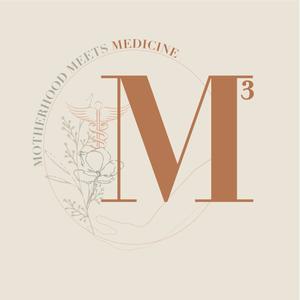
Motherhood Meets Medicine
Lynzy Coughlin
Where motherhood and medicine collide
- 58 minutes 7 seconds180: LISTENER FAVORITE: Addressing the Children’s Mental Health Crisis with Dr. Ariana Hoet
Over the next few months, I’ll be mixing in some of our earlier Motherhood Meets Medicine interviews with new episodes. These ‘best of’ episodes are the most shared and listened to episodes of all time!
Here is today’s featured episode with Dr. Daryl Johnson, listen as she discusses keeping the spark alive after kids.
Over the past two and a half years, we’ve been living in a pandemic. This has impacted our children in so many ways, particularly the state of their mental health. As we continue to see a rise in mental health concerns with children, we have to collectively pay attention to this crisis, and determine how we can offer support.
When a child's mental health is impacted in a way that is harmful to themselves or those around them, it can be challenging to alter that behavior or even discuss it. Dr. Hoet is on the podcast today to discuss how we can help our child who has a mental health disorder, or strong emotions, and how we can work through them.
Ariana Hoet, PhD, is the clinical director of On Our Sleeves and a pediatric psychologist at Nationwide Children’s Hospital. Dr. Hoet is deeply passionate about making sure everyone has a fair opportunity to be as healthy as possible and that people of all backgrounds are accepted and celebrated. Her personal experience as an immigrant from Maracaibo, Venezuela, has helped to fuel that passion.
Becoming a psychologist and working in the health field only increased her understanding of the importance of working toward inclusion and equity in our society. She hopes to further the mission of On Our Sleeves by providing inclusive resources helpful to all adults caring for children.
In today's episode we also discuss how we can help a child who is feeling thoughts of suicide or other harmful emotions, and the best ways to go about being there for them.
In this episode we discuss:
The pandemic being a chronic stressor.
Why Dr. Hoet started On Our Sleeves.
How to validate a child's heavy emotions.
Details of "Operation Conversation".
Reviewing warning signs if our child is feeling suicidal.
Resources:
Read about the estimates of children affected by Covid-19 - https://www.thelancet.com/journals/lanchi/article/PIIS2352-4642(22)00005-0/fulltext
On Our Sleeves - https://www.onoursleeves.org/
TableTopics cards - https://amzn.to/3Iwjpn3
Connection Cards for Kids - https://amzn.to/3yYUSUM
Discount code from my sponsors:
Get $30 off your Modern Fertility Hormone Test: modernfertility.com/mmm30
Get 50% off your first order of Hiya vitamins:hiyahealth.com/lynzy
Connect with Lindsay:
Join the Motherhood Meets Medicine community atpatreon.com/motherhoodmeetsmedicine - https://www.patreon.com/motherhoodmeetsmedicine
Instagram: @motherhoodmeetsmedicine
https://www.instagram.com/motherhoodmeetsmedicine/
Sign up for the weekly newsletter herelynzyandco.com - https://www.lynzyandco.com/
Disclaimer: This podcast does not provide medical advice. The information on this podcast is for informational purposes only. No material on this site is intended to be a substitute for professional medical advice, diagnosis or treatment.
Learn more about your ad choices. Visit megaphone.fm/adchoices
20 November 2024, 10:00 am - 51 minutes 15 seconds179: LISTENER FAVORITE: Gun Violence Statistics and How Changes Can be Made with Violence Epidemiologist, Dr. Katelyn Jetelina
Over the next few months, I’ll be mixing in some of our earlier Motherhood Meets Medicine interviews with new episodes. These ‘best of’ episodes are the most shared and listened to episodes of all time!
Here is today’s featured episode with Dr. Katelyn Jetelina, listen as she talks about gun violence and the changes that need to be made.
Gun violence has become a devastating problem in the United States. To put it into perspective, there’s about 120 firearms per 100 people in the United States. It may feel like we have no control over making changes, but there are steps that we can take. The number one place to start is educating ourselves about gun violence. We need to know more about it, and understand how we can reduce these fatalities in our everyday culture.
We all want to make our country safer for our children and for ourselves. That’s why I’m bringing Dr. Katelyn Jetelina on the podcast. In this episode Dr. Katelyn Jetelina and I discuss statistics, demographics of shooters, how the stats in the United States compares to other countries, and so much more.
Dr. Katelyn Jetelina is a violence epidemiologist, biostatistician, wife, and mom of two little girls. During the day she works at a nonpartisan health policy think tank and is engaged as a scientific communication consultant by the CDC, and at night she writes an independent newsletter called Your Local Epidemiologist, which covers a wide array of public health topics including gun violence.
In this episode we discuss:
The definition of what a mass shooting is.
Why the United States is higher in gun violence than many other countries it’s often compared to.
What the purpose of the leakage plans are.
The most common motivation behind shootings.
Whether or not the effect of Roe V Wade will play into more gun violence in the future.
What individuals can do to help reduce gun violence.
Resources:
Check out the Gun Violence Archive - https://www.gunviolencearchive.org/
Moms Demand Action - https://momsdemandaction.org/
Show Notes: https://lynzyandco.com/podcast/
Connect with Dr. Katelyn Jetelina:
Sign up for Dr. Katelyn’s newsletter, Your Local Epidemiologist - https://yourlocalepidemiologist.substack.com/
Follow her on Twitter - https://twitter.com/dr_kkjetelina?
ref_src=twsrc%5Egoogle%7Ctwcamp%5Eserp%7Ctwgr%5Eauthor
Discount Codes from Our Sponsors:
Navy Hair Care Shampoo + Conditioner: use code LYNZY for 30% off
Navy Hair Care Charcoal Mask: use code LYNZY for 30% off
Connect with Lindsay:
Join the Motherhood Meets Medicine community atpatreon.com/motherhoodmeetsmedicine - https://www.patreon.com/motherhoodmeetsmedicine
Instagram:@motherhoodmeetsmedicine - https://www.instagram.com/motherhoodmeetsmedicine/
Sign up for the weekly newsletterherelynzyandco.com - https://www.lynzyandco.com/
Disclaimer: This podcast does not provide medical advice. The information on this podcast is for informational purposes only. No material on this site is intended to be a substitute for professional medical advice, diagnosis or treatment.
Learn more about your ad choices. Visit megaphone.fm/adchoices
6 November 2024, 10:00 am - 1 hour 2 minutes178: LISTENER FAVORITE: Keeping the Spark Alive After Kids with Dr. Daryl Johnson
Over the next few months, I’ll be mixing in some of our earlier Motherhood Meets Medicine interviews with new episodes. These ‘best of’ episodes are the most shared and listened to episodes of all time!
Here is today’s featured episode with Dr. Daryl Johnson, listen as she discusses keeping the spark alive after kids.
Relationships always require a lot of time and energy in order to be successful. This becomes extremely challenging once a couple has children because all the focus is directed towards them. It sometimes seems impossible to create balance between your relationship with your partner and time spent with the children. Dr. Daryl Johnson joins me on this episode to teach us how to do just that.
Dr. Daryl is a couples therapist, licensed professional counselor and psychologist in the Washington DC area. Dr. Daryl helps her clients break through the obstacles that seem to be holding them back in their relationships. She specializes in guiding singles and couples toward healthy romantic relationships. She recently released her first book titled Love and Other Stuff, The No Bullshit Guide to Relationships When Love isn't Enough.
In this episode we discuss:
Relationship challenges that parents face and how to deal with them.
Common issues couples struggle with.
Ways to create healthy expectations within your relationship.
Tips for how to keep the spark in your relationship.
Resources:
Grab your copy of Dr. Daryl’s book,Love and Other Stuff The No Bullshit Guide to Relationships When Love isn't Enough - https://drdaryljohnson.com/shop/p/loveandotherstuff
The Gottman Institute - https://www.gottman.com/
Love Language Quiz - https://5lovelanguages.com/quizzes/love-language
Connect with Dr. Daryl:
Daryle Johnson Your Favorite Couples Therapist - https://drdaryljohnson.com/aboutdrdaryl
Instagram:@dr.daryljohnson - https://www.instagram.com/dr.daryljohnson/
Facebook:DrDarylJohnsonConsultingLLC - https://www.facebook.com/DrDarylJohnsonConsultingLLC
Dr. Daryl’s coaching programs - https://drdaryljohnson.com/coaching
Head to the show notes for resources from this episode:
lynzyandco.com/motherhood-meets-medicine-the-podcast/
Connect on Instagram @motherhoodmeetsmedicine.
Join the Motherhood Meets Medicine community at patreon.com/motherhoodmeetsmedicine.
Disclaimer: This podcast does not provide medical advice. The information on this podcast is for informational purposes only. No material on this site is intended to be a substitute for professional medical advice, diagnosis or treatment.
Learn more about your ad choices. Visit megaphone.fm/adchoices
16 October 2024, 9:00 am - 1 hour 39 minutes177: LISTENER FAVORITE: Postpartum Depression, Postpartum Anxiety, and Intrusive Thoughts with Dr. Catherine Schmidt
Over the next few months, I’ll be mixing in some of our earlier Motherhood Meets Medicine interviews with new episodes. These ‘best of’ episodes are the most shared and listened to episodes of all time!
Here is today’s featured episode with Dr. Catherine Schmidt as she discusses postpartum depression and or anxiety.
One in five moms experience postpartum depression and/or postpartum anxiety. Recent research shows that half of moms experience intrusive thoughts during their motherhood journey. Do these statistics surprise you? If you are experiencing any of these mood disorders, you’re most definitely not alone. Today, Dr. Catherine Schmidt is answering all our questions on these topics.
Dr. Catherine Schmidt is a licensed clinical psychologist with a private practice in San Francisco, California. She specializes in helping women improve their relationships, alleviate anxiety, and cultivate a balanced, fulfilling life.
In this episode we discuss:
The difference between baby blues and postpartum depression.
Intrusive thoughts and how to effectively manage them.
How and where to seek help with PPD and PPA.
Post-weaning depression and postpartum rage.
Whether or not placenta encapsulation has proven benefits.
Resources mentioned:
Psychology Today - https://www.psychologytoday.com/us?tr=Hdr_Brand
Connect with Dr. Catherine:
Dr. Catherine Schmidt - http://drcatherineschmidt.com/
Instagram:https://www.instagram.com/drcatherineschmidt/
Discount Codes from Our Sponsors:
Navy Hair Care Shampoo + Conditioner: use code LYNZY for 30% off
Navy Hair Care Charcoal Mask: use code LYNZY for 30% off
Connect with Lindsay:
Join the Motherhood Meets Medicine community at patreon.com/motherhoodmeetsmedicine
Instagram:@motherhoodmeetsmedicine
Sign up for the weekly newsletterherelynzyandco.com
Disclaimer: This podcast does not provide medical advice. The information on this podcast is for informational purposes only. No material on this site is intended to be a substitute for professional medical advice, diagnosis or treatment.
Learn more about your ad choices. Visit megaphone.fm/adchoices
2 October 2024, 9:00 am - 55 minutes 29 seconds176: The Importance of Risky Play with Dr. Mariana Brussoni
Children are safer today than they have ever been in history, but is that a good thing? What skills and experiences are they losing out on if they’re not exploring the world around them in a way that requires thought and risk?
Dr. Mariana Brussoni is here to share more about this exact phenomenon.
Dr. Brussoni is a Professor at the University of British Columbia, Director of the Human Early Learning Partnership, and Investigator at the British Columbia Children's Hospital Research Institute. She studies how to bring risky play back to children's lives.
Her research focuses on understanding the effects of outdoor risky play on children and breaking down the barriers to children's access to these opportunities.
Risky play does not necessarily mean dangerous play. Risky play is all about allowing children to experience the world without the ever watchful eyes of their parents. Providing opportunities for them to navigate challenges on their own, outside, with friends and grow into the adults they’re becoming.
In this episode, we discuss:
What differentiates risky and dangerous play.
The developmental benefits of risky play.
How to find the balance between risky and safe play.
How to expose your children to risky play.
Connect with Mariana:
Outside Play-https://www.outsideplay.org/
Questions:
What is risky play and why is it important?
Why is it disappearing from children's lives?
How do we find the balance between risk and safety?
How do we bring back risky play?
Disclaimer: This podcast does not provide medical advice. The information on this podcast is for informational purposes only. No material on this site is intended to be a substitute for professional medical advice, diagnosis or treatment.
Learn more about your ad choices. Visit megaphone.fm/adchoices
25 September 2024, 9:00 am - 49 minutes175: How to Spark Your Child's Inner Drive with Ellen Braaten
Do you ever find yourself worried that your child doesn’t seem motivated to excel or succeed at the things they do in life? Perhaps it’s because they haven’t found their thing. Or maybe it has to do with the way you’re talking to them about their interests.
It’s amazing the changes our children experience as they learn about themselves and grow into the adults that they’ll become. But sometimes sparking their inner drive seems like a herculean task. Here to share her tips and tricks is Ellen Braaten, Ph.D.
Ellen is a prominent psychologist and author at Massachusetts General Hospital since 1998. Dr. Braaten holds several prestigious positions, including executive director of the Learning and Emotional Assessment Program and the Kessler Family Chair in pediatric neuropsychological assessment, and an associate professorship at Harvard Medical School.
Listen in as she shares her tips and advice for helping your kids navigate struggles, letting go when your child is no longer interested in something that they used to love, and learning how to advocate for your child at school.
I learned so much from this conversation and I hope you do as well. My favorite piece of advice she gives is to parent the child you have. Such a great reminder!
In this episode, we discuss:
Why children struggle in school.
Methods to keep your children motivated.
How public education can better accommodate various learning styles.
Connect with Ellen:
Ellen Braaten PhD -http://ellenbraatenphd.com/
Questions:
What is motivation?
Why do kids seem so unmotivated these days?
What does the college process have to do with Motivation?
Disclaimer: This podcast does not provide medical advice. The information on this podcast is for informational purposes only. No material on this site is intended to be a substitute for professional medical advice, diagnosis or treatment.
Learn more about your ad choices. Visit megaphone.fm/adchoices
18 September 2024, 9:00 am - 49 minutes 19 seconds174: Discussing Perimenopause & Menopause with Vanessa Wieland
Are you done having kids, approaching or entering your forties, and trying to figure out why your periods have suddenly become unbearable? It’s very possible you’ve entered perimenopause.
But how do you know for sure and what can you do about all these crazy, whackadoodle symptoms? Vanessa Wieland is here to share her knowledge and expertise as well as the studies that support the various therapies she uses.
Vanessa is an adult gerontology nurse practitioner with over 10 years of experience. She opened her own menopausal wellness clinic, phases clinic in January 2024 which focused on hormonal and non hormonal treatment for the symptoms of perimenopause and menopause. She is certified as a Clinical Hypnotherapist in order to treat women with menopausal symptoms who cannot take hormone therapy.
As far as she knows, she is the only menopause specialist slash hypnotherapist in the world, as one mentor put it “a niche of one”. Some other fun things about her is that she hiked the Appalachian Trail in 2013 which took her six months. By the way, she taught English in China in 2005 speaks Mandarin, and she's a mountaineer.
It seems like menopause and perimenopause have always been these inevitable and scary times that women have to go through and just deal with, but that’s not the cause anymore. Do you feel more prepared to go through the change?
In this episode, we discuss:
Everything related to perimenopause and menopause.
Symptoms and when you might start experiencing them.
Treatments available to treat the symptoms.
Connect with Vanessa:
Phases Clinic -https://www.phasesclinic.com/
Instagram -https://www.instagram.com/phases.clinic
Facebook -https://www.facebook.com/phasesclinicnb
Questions:
What are some of the earliest signs of perimenopause/how can you tell perimenopause from postpartum, low thyroid, etc?
Doesn't hormone therapy cause breast cancer and heart disease? What's the deal with the Women's Health Initiative that came out in 2002?
Is it okay to treat symptoms in perimenopause, or do you have to wait until your last period?
Is there a particular age when I have to stop using hormone therapy? (Answer: no)
Why did you decide to become certified in hypnotherapy for menopause care?
Disclaimer: This podcast does not provide medical advice. The information on this podcast is for informational purposes only. No material on this site is intended to be a substitute for professional medical advice, diagnosis or treatment.
Learn more about your ad choices. Visit megaphone.fm/adchoices
11 September 2024, 9:00 am - 48 minutes 22 seconds173: How Birth Order Shapes Who We Are with Dr. Kelly Jameson
It’s amazing how much the order of birth impacts your children’s personalities and your parenting style. Have you ever wondered why it seems like all the babies of the family are outgoing with huge personalities but the oldest children are often quiet and reserved?
It’s because of the birth order and how family resources are used while raising your children.
Dr. Jamison is a therapist and speaker located in Dallas, Texas. She specializes in teens and the mental health of mothers and she’s been studying the relationship between behavior and birth order.
Join us as she shares more about the impact of birth order on family dynamics, ways your birth order impacts your parenting style, and how to use this information to better support your children.
In this episode, we discuss:
Birth order’s potential impact on personalities and family dynamics.
How birth order might influence a mother’s parenting style.
The ways birth order can help navigate sibling rivalries and foster a sense of fairness.
Connect with Dr. Jameson
Dr. Kelly Jameson -https://drkellyjameson.com/
Facebook -https://www.facebook.com/kellyjamesonPhD/
Instagram -https://www.instagram.com/drkellyjameson/
Questions:
Most common mental health issues facing moms?
Why does parenting feel so daunting with this generation?
What can moms do to take better care of themselves?
Disclaimer: This podcast does not provide medical advice. The information on this podcast is for informational purposes only. No material on this site is intended to be a substitute for professional medical advice, diagnosis or treatment.
Learn more about your ad choices. Visit megaphone.fm/adchoices
4 September 2024, 9:00 am - 1 hour 4 minutes172: Raising Confident and Connected Children with Eli Harwood
The benefits of attachment parenting cannot be overstated. Securely attached kids are more confident, connected and more prepared to enter the world. They also tend to experience fewer health problems.
But why?
Here to share more about the science behind attachment parenting and how we can raise confident connected children is Eli Harwood.
Eli is a licensed therapist who lives in Colorado with her husband and three children. She's an expert on attachment theory and the author of Raising Securely Attached Kids, which will be available September 2024. She also loves playing dress up with her kids, obsessing about sourdough starter. And reminiscing about that one time, she won a set of globes as a Price Is Right contestant.
The good news is that even if you haven’t been parenting in a way that promotes attachment up to now, this process is flexible and ever changing. The best time to start is right now. Listen in to hear all of Eli’s tips and tricks no matter the age of your children.
In this episode, we discuss:
What securely attached parenting is.
How it benefits children throughout their lives.
How you can cultivate it in your own home.
We touch on highly sensitive children, how you can connect with them and help them to feel more seen and secure.
Resources:
https://www.amazon.com/Raising-Securely-Attached-Kids-Connection-Focused/dp/B0CPDP7DT5
Connect with Eli:
Attachment Nerd -https://attachmentnerd.com/about
Instagram -https://www.instagram.com/attachmentnerd/
YouTube -https://www.youtube.com/channel/UCWUY-2dpPEbeetSUhT2q-7Q
LinkedIn -https://www.linkedin.com/in/eli-harwood-b3b9495/
Questions:
What is securely attached parenting?
How is secure attachment parenting different from William Sears’ attachment parenting?
What are common life events that test the bond between kids and parents, and how can they be overcome?
How can you restore the bond with your kid if it has been broken?
Is it ever too late to switch to a secure attachment parenting style?
Disclaimer: This podcast does not provide medical advice. The information on this podcast is for informational purposes only. No material on this site is intended to be a substitute for professional medical advice, diagnosis or treatment.
Learn more about your ad choices. Visit megaphone.fm/adchoices
24 July 2024, 9:00 am - 1 hour 49 seconds171: Understanding Learning Disabilities in the Classroom with Research Scientist Katie Davis
Trying to navigate the world of learning disabilities with your children and just getting more and more confused? Trust me, I know. I’ve been there. Which is why I keep bringing in the experts to provide you ways to understand learning disabilities in the classroom.
Something I just learned was that a lot of the terms that educators have started to use aren’t even true medical diagnoses recognized by medical professionals. Crazy!
Here to share more about learning disabilities is Katie Davis. She is a Research Scientist at Johns Hopkins University and a clinical Neuropsychologist in New York City. She specializes in the diagnosis and treatment of learning and attention disorders. Katie is an expert in statistics and her research focuses on helping clinicians and educators apply statistical rigor to their data analysis.
Listen in to learn more about the most often diagnosed disorders, what the terms actually mean, and how to talk to your kids about their learning disabilities. Katie also shares her thoughts on how to get the best support for your children within their school system.
In this episode, we discuss:
What the terms Dyslexia, Dysgraphia and Dyscalculia mean.
How they are different from learning disorders in Reading, Writing and Math.
When diagnostic labels are useful and not useful.
How to talk to your child about their learning disorder.
Resources:
Connect with Katie:
Dr. Katie Davis -http://Drkatiedavis.com
TeenSights -Katiesd.substack.com
Instagram -https://www.instagram.com/drkatiesdavis/
Questions:
What do the terms dyslexia, dysgraphia, and dyscalculia mean, and how are they different from learning disorders in reading, writing, and math?
What are the differences between a diagnosis, a disability, and a school classification?
What do we mean when we say “processing”?
When are diagnostic labels useful and not useful?
What labels do professionals commonly use that aren’t official diagnoses, and what is the utility (or lack thereof) of those labels?
Disclaimer: This podcast does not provide medical advice. The information on this podcast is for informational purposes only. No material on this site is intended to be a substitute for professional medical advice, diagnosis or treatment.
Learn more about your ad choices. Visit megaphone.fm/adchoices
17 July 2024, 9:00 am - 56 minutes 13 seconds170: Accessing Sexual Education for Our Youth with Tara Jones
Access to sexual education for our youth is unbelievably important both from a health standpoint and from an education standpoint. But so many schools these days have sex education as optional and many don’t even require the curriculum to be medically accurate.
That’s why I’m so excited to talk with Tara Jones all about how she’s helping to change the landscape of sexual education.
Tara is a black queer sex educator based in Philadelphia and New York. For the last five years that work has consisted of creating sex education, social media content aimed at young adults, writing for various publications and speaking at events. She is also the founder of the Youth Sexpert Program, a digital training program that aims to provide comprehensive sex education for high school enrolled youth.
Listen in to hear her thoughts on why educating tweens and teens and creating peer advocates is so much more effective than traditional sex education and how she’s affecting this change now.
In this episode, we discuss:
The importance of access to sexual education for kids.
Why Tara created the Youth Sexpert Program and what it entails.
The barriers that exist when it comes to accessing sex education.
Resources:
The Youth Sexpert Program -http://www.theyouthsexpertprogram.org
Instagram -http://www.instagram.com/theyouths3xpertprogram
The Importance of Comprehensive Sex Education -https://www.aap.org/en/patient-care/adolescent-sexual-health/equitable-access-to-sexual-and-reproductive-health-care-for-all-youth/the-importance-of-access-to-comprehensive-sex-education/
Sex Positive Families -https://sexpositivefamilies.com/
Good Sex Illustrated -https://amzn.to/4aVxib3
Come As You Are: Revised and Updated: The Surprising New Science That Will Transform Your Sex Life -https://amzn.to/4ca2YKR
Right to Sex-https://amzn.to/4bMAR4L
Questions:
How did The Youth Sexpert Program come to be?
How was The Youth Sexpert Program's curriculum built and what does it contain?
What have your observations been regarding how students approach talking about sex?
What have your observations been regarding conversations between youth and parents about sex?
Disclaimer: This podcast does not provide medical advice. The information on this podcast is for informational purposes only. No material on this site is intended to be a substitute for professional medical advice, diagnosis or treatment.
Learn more about your ad choices. Visit megaphone.fm/adchoices
10 July 2024, 9:00 am - More Episodes? Get the App
Your feedback is valuable to us. Should you encounter any bugs, glitches, lack of functionality or other problems, please email us on [email protected] or join Moon.FM Telegram Group where you can talk directly to the dev team who are happy to answer any queries.
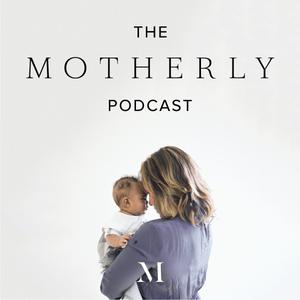 The Motherly Podcast
The Motherly Podcast
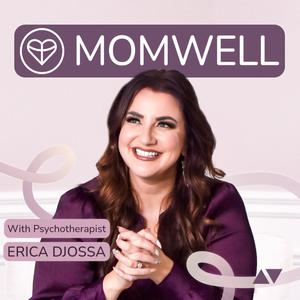 Momwell
Momwell
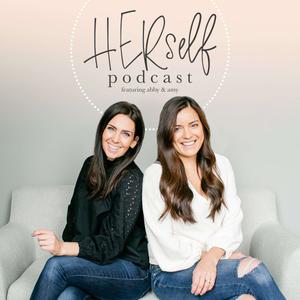 HERself
HERself
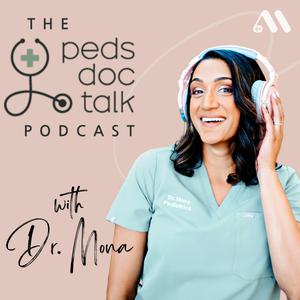 The PedsDocTalk Podcast
The PedsDocTalk Podcast
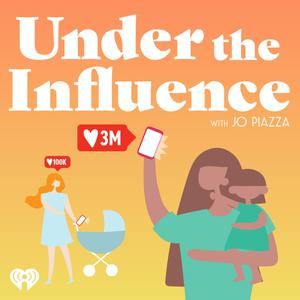 Under the Influence with Jo Piazza
Under the Influence with Jo Piazza
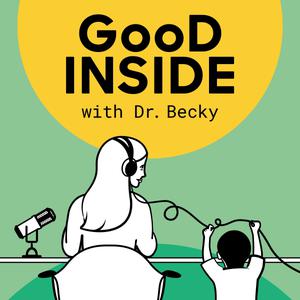 Good Inside with Dr. Becky
Good Inside with Dr. Becky